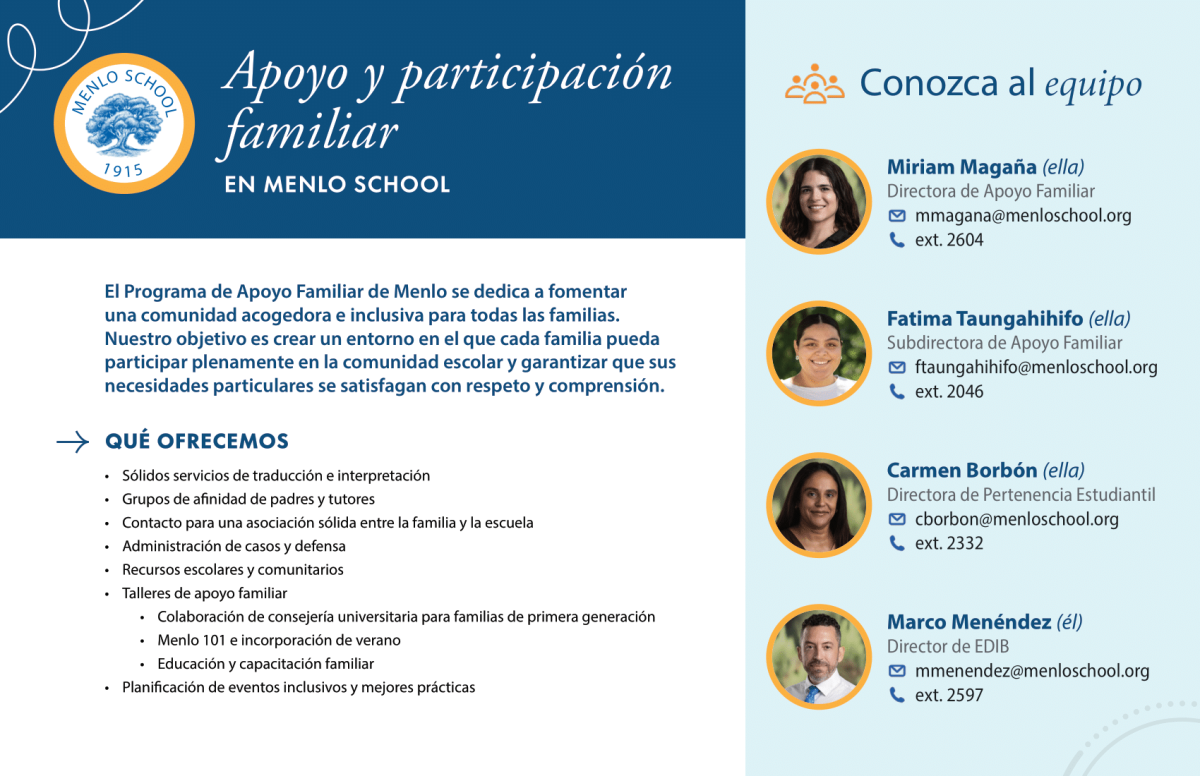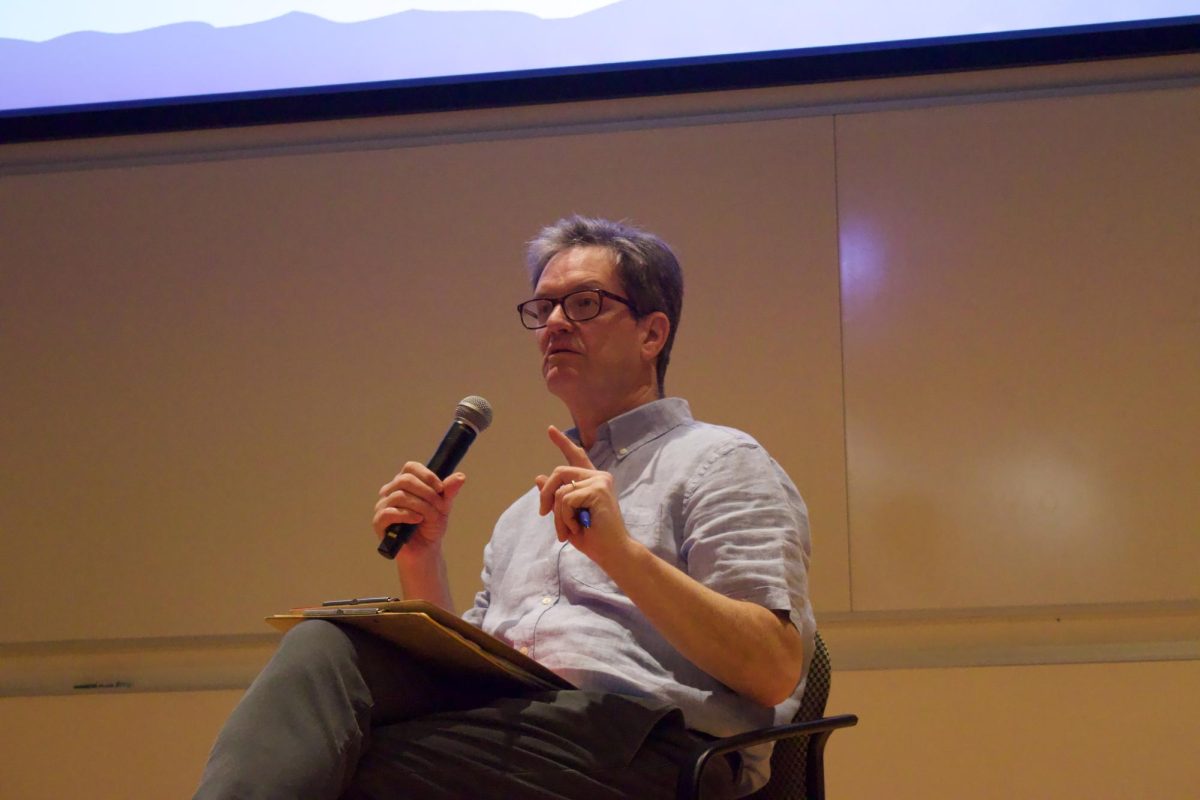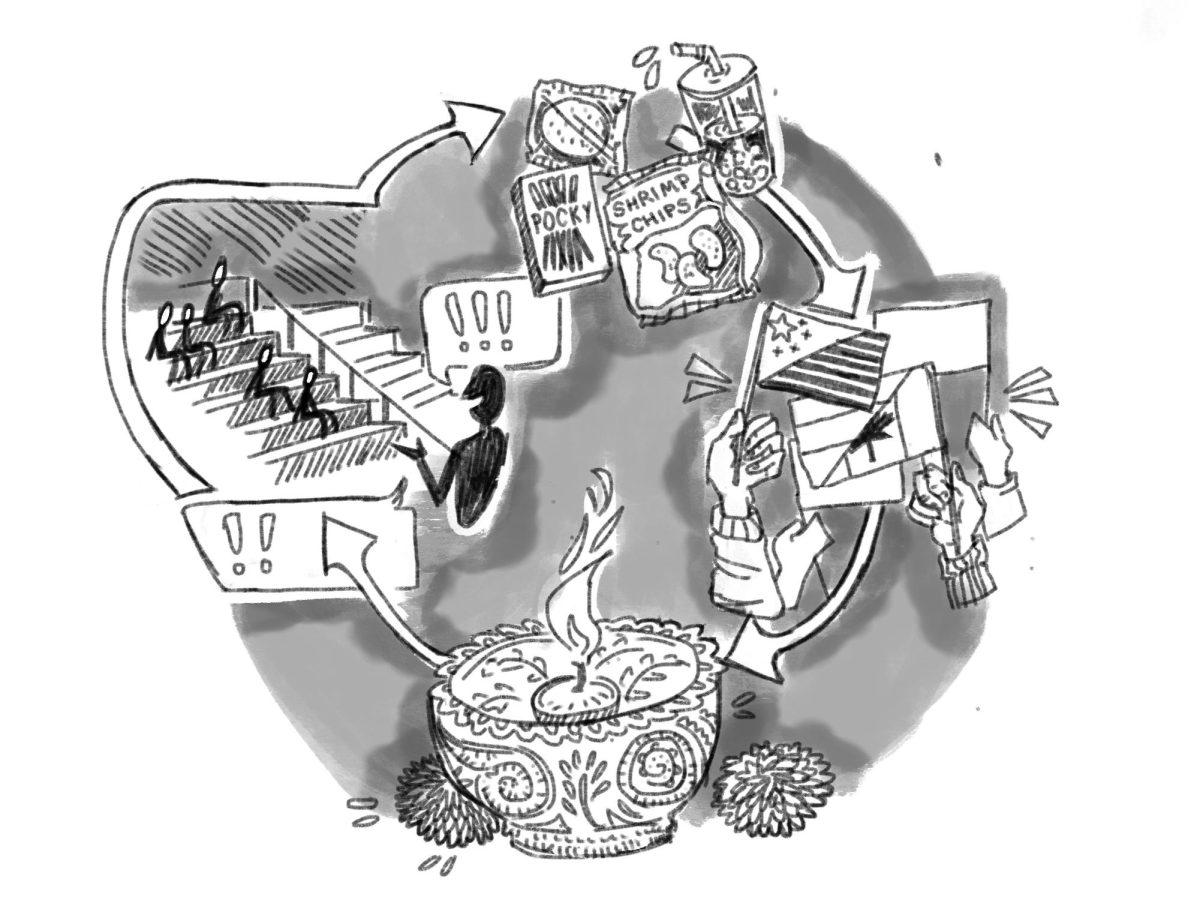Friday May 8, Menlo Upper School had an assembly addressing recent issues of police violence involving race.
Sarah Rantz | Staff Reporter
Photo Courtesy Menlo Flickr
For those who missed it, the Menlo upper school held an assembly this past Friday that focused on Freddie Gray and the protests in Baltimore. The assembly included basic information about the events in Baltimore from teachers, a panel comprised of students and teachers, and a time in which people from the audience could ask the panel questions and express their own ideas or opinions.
Upper School Director John Schafer opened the assembly describing the ‘bubble’ that Menlo students live in that allows them the luxury to essentially ignore major issues in America as it doesn’t directly affect them. Mr. Schafer stressed to the student body that the events happening in Baltimore, Ferguson, and Staten Island are not only a social problem, but a complex cultural and economic problem as well. Mr. Schafer’s primary point was that the Menlo community, full of young adults who have the tools and the ability to change the world, has an obligation to educate themselves about the world around them and that Menlo school, a prestigious institution that prides itself on global awareness and sensitivity, has the obligation to address it.
History teacher Dan Devitt talked about the disproportionate economic hardship that communities of color face in America and how they are disadvantaged with poor public schools, difficulty getting jobs because of their skin color, and difficulty getting access to health care. He also touched on the similarities between the events in Baltimore and the events in Ferguson.
The most important point that teacher Stephanie Portman spoke about was that mainstream media, comprised of businesses like CNN, MSNBC, Fox News, and CBS strive to get the most ratings. This means that often times these businesses will only cover stories (or parts of them) that get them the most viewers – like the violent riots – rather than to giving the whole and honest truth. This presents a serious problem of misinformation and a distorted influence being given to the general public that shapes their opinions.
Menlo Diversity Director Ms. Birts worked hard to administer the assembly with the hopes that it would trigger a dialogue in the Menlo community. “This is an educational experience,” Ms. Birts said. She emphasized that the purpose of the assembly was not to impose one ‘correct’ opinion, but to inform the students of the basic facts and to allow them to form their own opinions.
The panel was comprised of eight community members who are active in the movement against police brutality and systematic racism and those who have been personally affected. History teachers Rene Villicaña and Matthew Nelson, students Makena Lambert, Lola Williams, Jason Okoro, Julissa Torres, and Ayla Elam, and Director of Security Tom Hitchcock were on the panel. In an open discussion, the panelists were asked:
1) What their greatest frustrations were regarding the death of Freddie Gray
The panel’s greatest frustrations was that media was not being honest and vilifying innocent victims like Freddie Gray.
2) What discussions surrounding the events in Baltimore, Staten Island, and Ferguson have been about outside of school
Most panelists admitted that a portion of the friends and family they talked to were misinformed and displayed ignorant perceptions and assumptions of the events.
3) Why it is important to talk about current events
Panelists explained that it’s important to talk about current events to start a dialogue. If the events are uncomfortable and complex, even better. A dialogue of different opinions arouses feelings and passion, both vital for change to occur.
Hitchcock expanded on the topic of police brutality and racism within the judicial system, his extensive knowledge stemming from his experience as a former police chief for the NYPD and cop of 40 years.
At the end of the assembly, some students expressed interest in staying updated on the events happening in Baltimore and other cities across the country. To be active, it is important to start off by doing your own research. See where you stand on the issue – form your opinion and become educated on viewpoints that you agree with, so, if given the chance, you could hold an intelligent conversation and effectively get your point across. Then, connect with people in your community with similar interests and passions to form a group. This group could work together to find rallies or protests to go to, petitions to sign, and nearby speakers to hear from.
Editor’s note: For those interested in getting involved, search for the Facebook group entitled “Social justice @ Menlo.” The purpose of the group is for Menlo community members to post information and events that will be of interest to other members invested in social justice and change.








